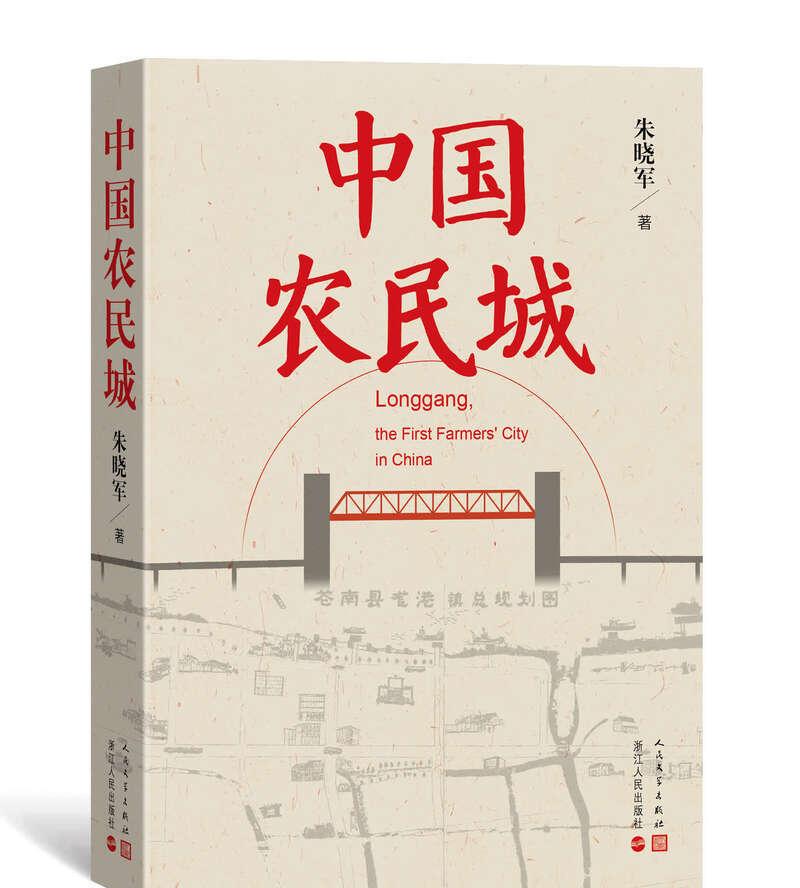In the 1980s, there was a folk song circulating in Wenzhou, Zhejiang: "Pingyang begs for food, Yongjia flees, Dongtou relies on loans to eat..." In 1981, the famous poverty-stricken county of Pingyang became two poverty-stricken counties. Among them, Cangnan is particularly poor, there is no county, central town, and no economic center, for this reason, the local decision to build an economic center and a material distribution center - Longgang Town.
The long-form reportage "Chinese Peasant City" was recently published by the People's Literature Publishing House and the Zhejiang People's Publishing House. This book takes the development of Longgang, Zhejiang, a "town reform city" with no townships and streets as the main line, and tells the real history of the development of a small fishing village into China's first peasant city.

In the second half of the 20th century, almost every farmer had a dream of going to the city. In classic works such as "Ordinary World" and "Life", there are descriptions of the struggle experience of rural youth "those who have aspirations and vow to go to the city", and "peasants entering the city" once became the literary motif of writing in a certain period. The "Chinese Peasant City" records the tortuous process of a group of farmers eager to enter the city to build a city, and writes the history of entrepreneurship in the new era - farmers build a city.
When the town was established 40 years ago, Longgang, a deserted beach, began to develop from several fishing villages, and the people's lives were difficult, and the second secretary, Chen Dingmo, took the initiative to invite Miao to Longgang Town. He had a dream, that is, to lead the villagers to build a city on the spot, mobilize all the forces that can be mobilized, catch up with the Aojiang River on the other side, and let the peasants live the life of the people in the city - there are electric lights, there are roads, there are middle schools, there are hospitals, there are libraries.
Without applying for state investment, Longgang, under the leadership of Chen Dingmo, had to tap the policy resources of the "No. 1 Document of the Central Committee" - mobilizing farmers to raise funds to build a city, and taking the lead in launching the reform of the household registration system in China; before the introduction of the land law, it took the lead in implementing the paid use of land, attracting a group of farmers who became rich first to "raise funds to build a city", creating a "Longgang speed" that shocked the whole country.
In "Chinese Peasant City", every character is writing a legend with his life and dreams. The old secretary Chen Dingmo was the first strange man in Longgang, who repeatedly found a chance in the Jedi, and although he only had a primary school diploma, he could read through masterpieces of political theory. After repeated thinking and research, he found the method and basis for reform with the help of the reform and opening up policy and the 1984 Central Document No. 1, which had been issued to "allow farmers who worked, engaged in business, and run service industries to take care of their own rations and settle in market towns".
In the early years, Longgang people called the ten thousand yuan household "monkey", each "monkey" has its own history of hard struggle, and everyone's road to prosperity records the hard work under the illumination of dreams. Chen Zhihui, who spun and embroidered from small yarn, Chen Ruixing, who cut rubber in the mountains, Yang Enzhu, who built seven floors, as well as Chen Changxu, Yang Xiaoxia, Wang Junyao and other Longgang people, everyone's road to prosperity and conceptual change have become a true portrayal of farmers' realization of the Chinese dream in the new era.
Writer Tie Ning once said: "Literature and art is a basic way for people to understand and imagine the world, in this new era, writers and artists especially shoulder a major responsibility, that is, to understand life, understand the world, and convey their own understanding and ideals to the people, spiritually enlighten people, inspire people, create a better life, and promote social progress." "China's Peasant City" is such a work, the author Zhu Xiaojun in-depth interview and record hundreds of Longgang people yesterday and today, leaving a precious memory of urban change and the spiritual history of the process of peasants to citizens.
Zhu Xiaojun, a well-known contemporary reportage writer, has always attracted much attention for his writing that pays attention to reality and people's livelihood, and has published works such as "The Redemption of a Doctor", "The Conscience of a Senior Official", "Express China" and other works, and has won the Lu Xun Literature Award and the Xu Chi Reportage Literature Award.
Source: China Youth Daily client